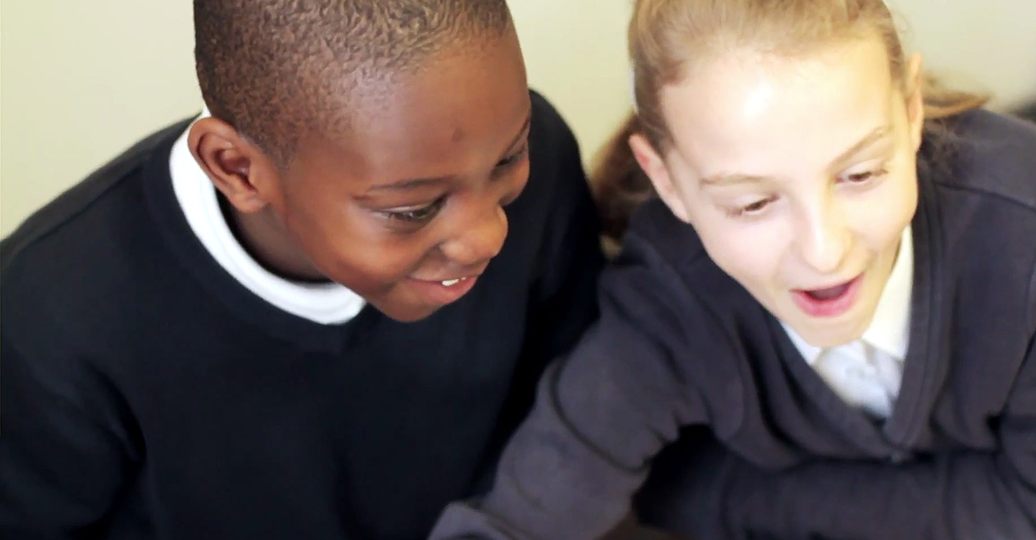The classroom of 2020 is very different to that of 2010. Today almost every classroom has an interactive whiteboard. Pupils are using tablets to learn. Homework is uploaded to a portal that teachers, pupils, and parents have access to. This generation of students have grown up with technology and expect nothing less. It’s not just about what students learn, but how they learn. Technological expertise, digital skills, collaboration and communication are important when preparing students for working and living in the 21st century.
Will things have changed as rapidly by 2030?
Clevertouch certainly think so, and will be one of the driving forces of the shift, as their screens and technology turn 21 in 2030. What will it look like as an adult? And how will the learning experience have changed?
Always on
Education will take place both in and out of the classroom, with seamless transition. In the future different platforms and devices will be connected and available anywhere, so that students can be always learning. The learning experience will become much more fluid, with education happening at home, in the classroom, and on the go. Clevertouch already allows teachers to share work with pupils via cloud accounts, and this will be the norm. Young people will enjoy learning, and find it an immersive experience that they can do wherever they are. Face to face learning will decline, and it could even be that pupils will be able to attend a school hundreds of miles away, and be able to engage entirely remotely.
Virtual and augmented reality
Virtual reality and augmented reality will be a game changer. Once pupils had to read about faraway places or historical events in dry textbooks. By 2030 it will become the norm to be able to immerse themselves in virtual reality spaces that enable them to really experience what it is they are learning about. They can time travel to the past, or visit places on the other side of the world, all through a headset.
Gamification
Gamification is being used throughout education and business. Gaming encourages learning through rewards and game mechanics, helping to improve retention, understanding, problem solving, as well as collaboration and social skills. Rather than traditional ways of learning, it will become much more common to utilise video and games to enhance education. The Cleverstore already has lots of apps and features that teachers can access to enhance learning, and there will be more development in this space.
Personal approach
Personalisation will be key. Students will increasingly direct and construct their own educational experience rather than passively absorbing it. Through artificial intelligence teachers will be able to develop learning plans bespoke to every individual, that plays to and enhances their strengths. Technology will allow teacher to provide individualized learning by tracking progress and personalizing activities to serve increasingly diverse classrooms. Adaptive learning tech uses data on individual achievements and progress to develop education plans specific to the learner’s speed, ability and interests.
Breaking down barriers
Every pupil deserves the best education, regardless of barriers that they have. In the future it won’t be necessary to be in the classroom to get a great education, so those with physical disabilities can learn from home. Pupils who struggle with literacy can learn in other ways, enhancing their knowledge through learning experiences like those available on Cleverstore. By using technology to alleviate some of the more repetitive and bureaucratic tasks a teacher has, they will be able to spend more time with students who are struggling and increase their attainment. The integration of education technology in the classroom can help pupils from all backgrounds achieve the equal opportunities they need for success.
Collaboration
The use of collaborative tools like interactive panels and tablets continues to increase. As prices decrease more and more classrooms will be kitted out, so that every pupil has their own device. It won’t be the preserve of the wealthiest schools, but available to all pupils regardless of social background. By 2030 half the world’s youth will live in countries with a mobile-first internet connection, and this will be used to access learning.
New formats
‘Lots of the tech that’s starting to be interesting now will evolve,’ says Shaun Marklew, Group Sales and Product Director for Clevertouch. ‘Now screens fold out but in the future it will possible to rotate screen into different formats. Then glass and touch technology will develop, and the glass become the large format touchscreen. The glass wall will become the screen. The classroom environment will completely change.’
What is clear is that the classroom of 2030 will be very different to 2020. Educational establishments and technology companies will have to move fast to respond the demands and needs of modern pupils who need to be prepared for a dynamic and varied future.


